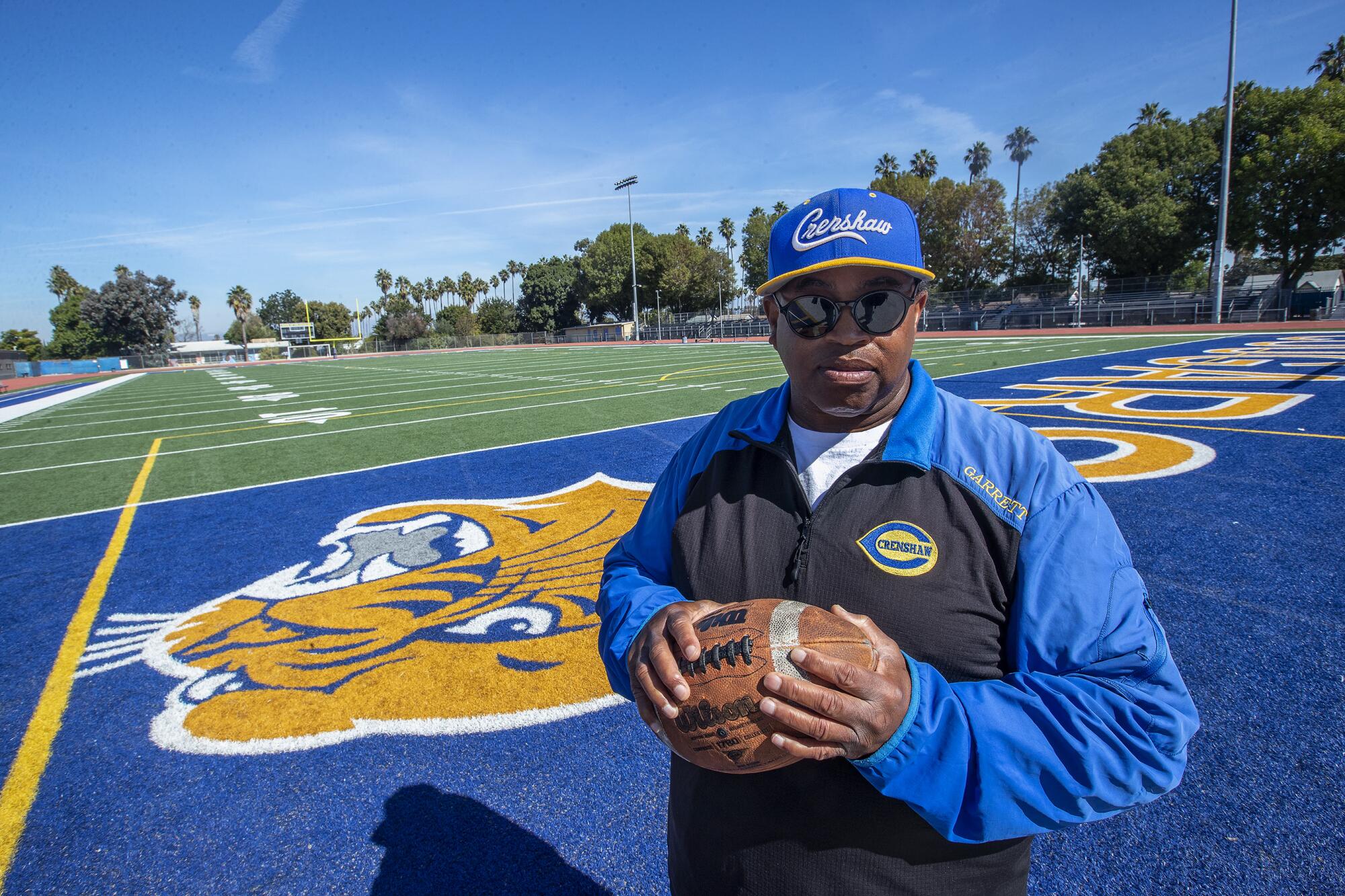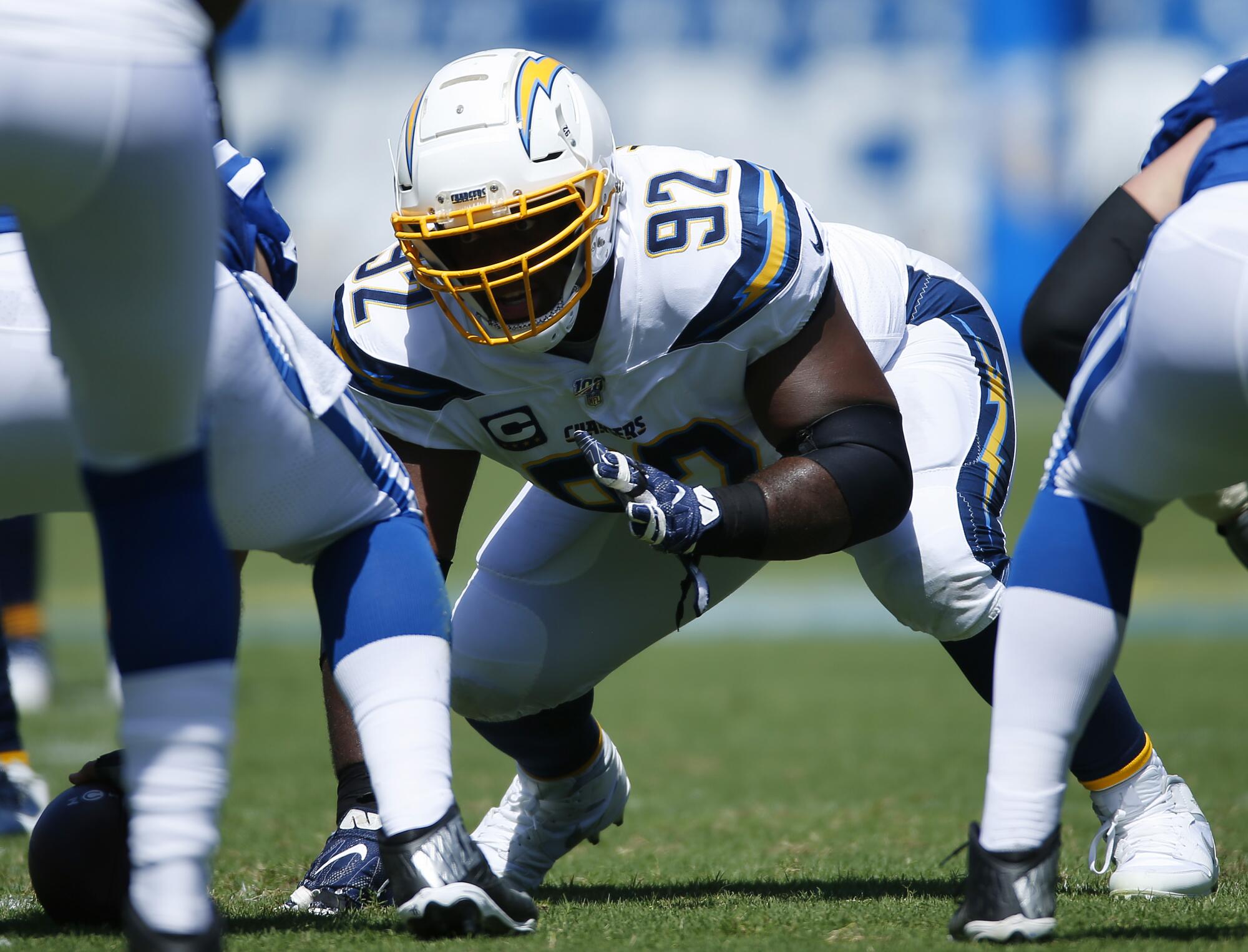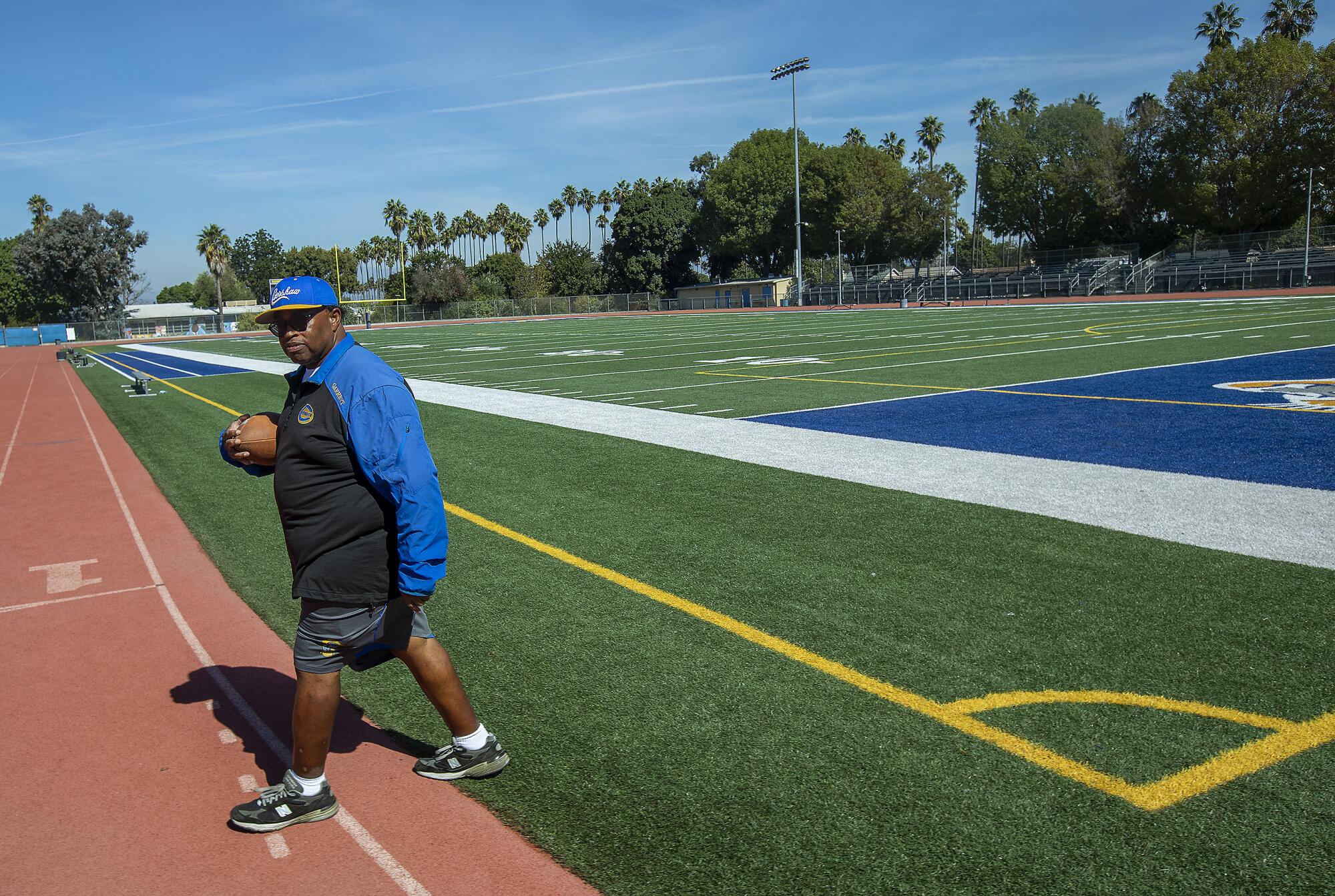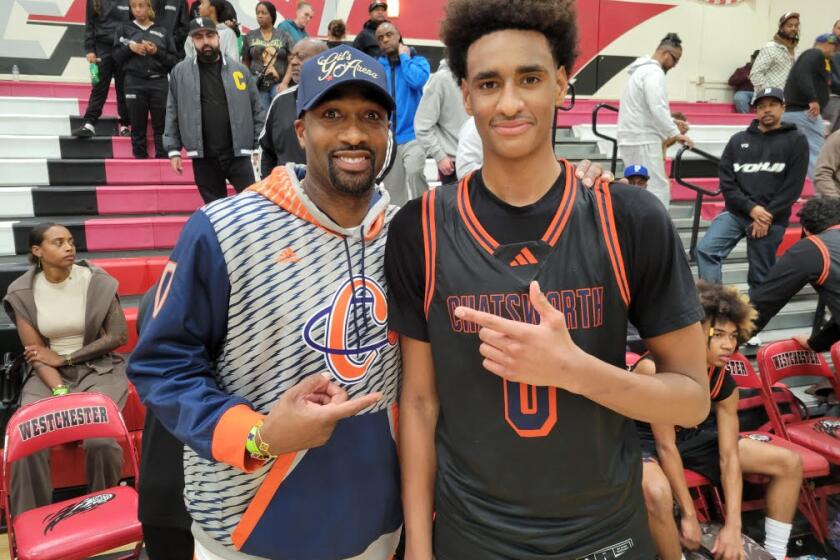
The boy in the red shirt is special.
As the rest of his youth football teammates shuffle their feet this July afternoon, he calls out formations perfectly. He finishes longtime Crenshaw Rams coach Eugene “Big U” Henley’s sentences for him.
“I like you!” Henley exclaims.
The boy in the red shirt is the future of Crenshaw High football. Yet when he shines with the Rams, the primary youth feeder program for the Cougars, people with charter school crests will come whisper promises of scholarships to his parents. And the dream will vanish.
“That kid,” Henley said, “will never make it to Crenshaw.”
He’s seen it again and again, where parents will feel the pull to get their talented kids out of Crenshaw for supposedly greener pastures. But they’ll overlook one thing.
Those greener pastures don’t have a Robert Garrett.
As the time passes, Garrett remains, a stone wedged in the sand.
The Crenshaw High coach’s tactics have always been the same. If he found out you’d been acting up in class, get ready to run for an entire practice. If you fell asleep in a film session, you might jolt awake to Garrett slamming his hand on your desk.
His voice, a lullaby in a one-on-one conversation, still drops to a baritone with a shout to a player across the field. His trademark shades remain, as do the shorts, no matter the season.
But one thing, at least, has changed — Garrett’s now the athletic director at Crenshaw.
“Who else better to run that type of program?” former quarterback Daiyan Henley said.
Not everyone would agree. Garrett’s always had his critics. He could be abrasive at times, former Crenshaw coach Ron Price said, unafraid to get in players’ faces. Few who truly know Garrett have anything bad to say.
Price said that Garrett, who became head coach in 1988, has more than proven that his methods work.
“They hated Jesus,” said former Crenshaw linebacker Nygel Lewis. “They gon’ hate [Garrett] too.”
Few can argue with the results — five City Section titles, dozens upon dozens of athletes going on to play NCAA Division I football, players like Brandon Mebane and De’Anthony Thomas sent to the NFL.
Garrett has coached the Cougars to 266 victories, which ranks second in City Section history behind Gene Vollnogle, who had 289 wins combined at Wilmington Banning and Carson, according to Cal-Hi Sports.

And it’s always been about more than football.
In 2014, in the second week of the team’s playoff run, the coach gave his players a rare break and let them out of practice early, Daiyan remembered. Strange, because Garrett was famous for holding marathon workouts.
The next day, the team was told that two players had been arrested the previous night for robbing a house in their Crenshaw jerseys.
Crenshaw lost its next game to Carson 23-7. Daiyan and Lewis realized that Garrett’s practices — “burning the midnight oil,” as he called it — were a targeted way to keep players on-campus and out of drama in a district where drama can beckon just down the street.
“Drama, for us, is literally in our minds all the time because you can step off campus and you could be looking for a quick dollar … it’s just the Crenshaw district,” Daiyan said.
“Big U” Henley, a Crenshaw graduate, said he got involved in that drama when he was young, incarcerated 13 years for possession of cocaine with the intent to sell. Now, Henley leans over a fence on the Crenshaw sidelines, watching fewer Rams than he used to coach trudge up and down the field.
“You just try and save the kids you have,” Henley said, a voice that normally booms dropping to a whisper.
“The ones I have left.”
As Crenshaw principal Donald Moorer took his seat for an Aug. 6 panel discussion on education, he pronounced with a grin, “Crenshaw in the house!”
Half an hour later, a crowd of perhaps 50 sitting in the plastic black seats at the Baldwin Hills Crenshaw Plaza had dwindled to 15.
It was an ironic reflection of reality. In 2010, Crenshaw had nearly 1,800 students. By spring 2022, a Los Angeles Unified School District spokesperson said fewer than 500 were enrolled.
“It’s not a school, so to speak … our school is half-empty,” Garrett said. As private and charter programs surge, once-trusty feeder schools like the Barack Obama Global Prep Academy and Mann UCLA Community School have become K-12 programs, retaining their students for high school rather than sending them to Crenshaw.
The problem has translated to football. In 2010, Garrett had about 50 players on a Crenshaw team that won its second consecutive City Section title, clad in powder-blue Cougar uniforms.
On Thursday, Garrett dusted off those jerseys for a scrimmage against Hamilton, whose players were wearing white. A fleet of champions such as Thomas donned that Cougar blue — but just 20 players wore it at Thursday’s scrimmage, a number of whom had been plucked from P.E. classes or the basketball team.
“In order for me to be successful, the kids gotta come in,” Garrett said, adding that on a good day there are 16 players at practice. The City Section’s minimum to play a game is 18.

Paul Knox, longtime coach at rival Dorsey until 2014, started to notice a trend of private programs siphoning youth talent from the inner city toward his later years. First the powerhouse schools would come and scoop the cream of the crop. Then the next tier. And the next.
“Pretty soon, you’re just left with 25 or 30 kids that they didn’t want,” Knox said.
Garrett’s never chased players. He never will, even as numbers slide closer and closer to the edge of a cliff.
“If they hang in there with me — hell, I can make something out of nothing,” Garrett said.
For Crenshaw football — and the school at large — to survive, it’ll need to develop a feeder system, Henley believes. That question of survival, for some, has become real.
“When you’re down to 500 students or less, at what point do they close the school down?” Price said.
Times are harder now. The stone wedged in the sand has had no choice but to shift. Garrett feels he can’t “nurture” kids anymore — can’t keep them as late at practice, can’t discipline like he used to.
But as long as he’s around, Daiyan said, Crenshaw’s name will survive. Because to many, Garrett is Crenshaw.
His roots extend to a massive tree of coaches in City football. He coached Norris Milton, now at Hamilton. Jason Grant, now at Jefferson. Compton Centennial principal Bobby Walker.
And Garrett’s always fighting for more. He’s pushed an agreement into effect by which kids going to school at Alliance Ouchi-O’Donovan, a charter school down the street from Crenshaw, can play with the Cougars as long as they live in the district.
“What is a pillar?” Daiyan said. “It’s something that stands still, stands strong, stands for a long time. And that’s exactly what G-man embodies.”
Garrett feels no one loves him, Daiyan said.
“Nobody around wants me to be successful,” Garrett said.
Maybe he doesn’t want to be loved?
“But he is,” Daiyan said, “very much so.”
More to Read
Get our high school sports newsletter
Prep Rally is devoted to the SoCal high school sports experience, bringing you scores, stories and a behind-the-scenes look at what makes prep sports so popular.
You may occasionally receive promotional content from the Los Angeles Times.






